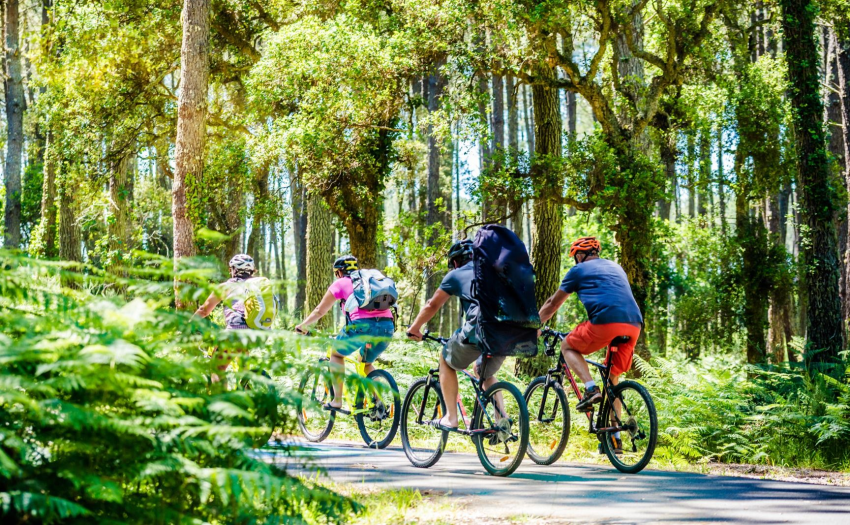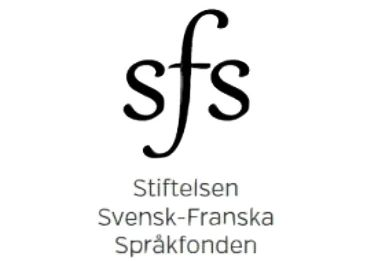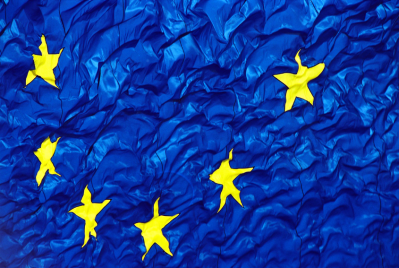
Sustainable travel, to discover another France!
Discover France in a different, less formal way - that's the commitment of the national tourism development website France.fr, which offers a different way of discovering France, through sustainable travel. Sustainable travel means, for example, practicing slow tourism, organizing your stay out of season, favoring eco-responsible labels and knowing how to calculate your carbon footprint!
France.fr is the website ofAtout France, the agency dedicated to promoting tourism in France. With the help of the French and international tourism ecosystem, Atout France develops tourism experiences for "the travelers of today and tomorrow". Atout France, which defines itself as a "tourism activator", is firmly committed to more sustainable tourism.
A trip out of season, far from the summer crowds
But how, in practical terms, can you "travel sustainably"? Atout France offers several solutions. The first is to travel out of season. If you haven't bought your tickets yet, the ideal solution would be to spend spring in France, either in the mountains or by the sea, far from the summer crowds.
In the mountains first of all, from the Alps to the Pyrenees, via the Vosges and the Massif Central, the return of fine weather "reaches new heights with a multitude of activities, meetings and events". It's a "gentle way to get back into skiing". If you're a beginner, says the site, "it's the ideal season to put on your spatulas, with fewer people on the slopes, less waiting at the lifts, cushioned falls in fluffy snow"... Similarly, in the mountains in spring, "the awakening of nature is much more than a spectacle, it's a renewal, an emotion that overwhelms even the most hardened".
The same goes for the sea. In France, "enjoying the beach is a national sport". Atout France has put together a list of the "best spots in France for a seaside break in spring", away from the intensive tanning. Where to go? In Corsica, the beach at Palombaggia in Porto Vecchio, "voted 'most beautiful beach in France'", in Deauville in Normandy, where the beach and boardwalk are world-famous thanks to Claude Lelouch and his film "Un homme et une femme", on the beach at Pampelonne in Saint Tropez, a " place to be at least once in your life", on the 12-kilometer-long beach at Le Touquet Paris-Plage (Hauts-de-France), which is "a great success because of its location less than 2 hours from Paris", or on the Dune du Pilat in the Bassin d'Arcachon, France's most popular beach on Instagram and also the most fascinating: At 110 metres high, "it's the biggest dune in Europe! ".
A trip to take it easy
Sustainable travel also means choosing "gentle roaming" or "slow tourism".
How about discovering France "by taking it easy, taking your time, savoring encounters and landscapes to fill up on beauty and serenity". That's what the site invites you to do, since on foot, by bike or on the water, France is "a wonderful playground for local micro-tours, always full of originality".
Cycling first. In the land of the Tour de France, there's no shortage of opportunities to get on your bike: 22,800 kilometers of véloroutes and voies vertes, 5,500 kms of regional tourist itineraries and 3,000 road and mountain bike circuits... There's a bike for everyone, whether "sporty, all-terrain or electrically-assisted", to "hurtle down the hillsides of Champagne, climb the mountains of Auvergne or the passes of the Alps, pedal with your hair in the wind along the Atlantic coast or stroll from one château to another in the Loire Valley".
Then there's hiking . Nothing could be easier in France: 11 National Parks, 59 Regional Nature Parks and 180,000 kilometers of marked trails, including 65,000 long-distance trails! Whether it's these hiking trails, coastal paths, ocean-side dunes, small country roads or mountain climbs, in France you've got the choice!
Another option is river tourism. With its rivers, streams and, above all, "enfilades de canaux", France is an inviting place to go boating. With 8,500 kilometers of navigable waterways, 6,700 of which are designated Voies navigables de France, France is Europe's champion for the largest river network. Anything is possible, especially on the Rhône, Burgundy or Midi canals.
A green and blue journey in a tricolored country
Whatever the season or mode of travel, according to Atout France, the important thing is to "give preference to eco-responsible labels ", all of which promote "green tourism".
The first step is to choose a sustainable destination, such as a Station Verte . Created in 1964, this tourism label, as Atout France points out, "brings together areas offering meaningful holidays, adopting a green tourism approach focused on nature and respecting the environment". A Station Verte can be located in the countryside, in the mountains or near the coast.
Another label is the Pavillon Bleu, one of the oldest eco-friendly labels in France. Created in 1985 and now present in 46 countries, it is one of the UN's Sustainable Development Goals. According to Atout France, the Blue Flag, awarded to a seaside community or marina, ensures that the site "has facilities to minimize the impact of tourist traffic, such as waste sorting garbage cans and sanitary facilities". To date, 405 French beaches in nearly 200 towns and villages have been awarded the label, along with 105 marinas.
You'll also need to choose eco-friendly accommodation. The Clef Verte, for example, is a benchmark label for sustainable tourism, listing hotels, bed and breakfasts, bed and breakfasts, vacation villages, campsites and youth hostels. A hundred or so criteria have been defined to help accommodations achieve a "high-performance environmental approach". In France, 1,077 tourist establishments have been awarded the Green Key label.
And now that you're (well) accommodated, why not opt for a "locavore restaurant"? Thanks to the Michelin guide, the "bible of French gastronomy" which each year rewards the best restaurants in the world, follow the Green Stars. The guide awards Etoiles Vertes to "eco-responsible addresses committed to sustainable gastronomy": use of local produce, respect for the seasons, menu composition, initiatives to improve waste management. France boasts some one hundred Michelin Green Star establishments.
What you need to know before calculating your carbon footprint
While travel of any kind "generates greenhouse gas emissions and has a definite impact on the environment", Atout France's advice is designed to help you get a clearer picture before calculating your carbon footprint.
To begin with, says the site, it's important to understand the different sources of greenhouse gas emissions that can be generated during a trip. Here's a brief catalog of the main sources of pollution and other energy-consuming items during travel:
- transport : planes, ferries, trains, buses and cars are all modes of transport that generate greenhouse gas emissions;
- accommodation: even though more and more hotels and resorts are committed to eco-responsibility, they still consume energy for heating, air-conditioning, lighting and other equipment;
- food: food products of animal origin have a higher carbon footprint than those of plant origin, due to the consumption of water and arable land required to feed livestock;
- tourism activities: selected activities contribute to the carbon footprint. For example, as the site points out, "taking a jet ski trip does not have the same impact as a kayak trip"!
Now that you know, the easiest thing to do is to calculate the carbon footprint of your trip using online calculators, such as those developed by the Goodplanet Foundation or the Nos gestes climat website. Another solution is to calculate your carbon footprint for the year (and not just for trips) with Ademe.
But Atout France points out that "these calculators only give orders of magnitude"...









No comment
Log in to post comment. Log in.